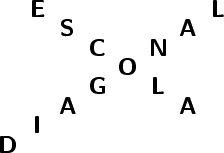|
|
Porto
- 7
|
Lectures on the interplay between ergodic theory, Ramsey theory and Diophantine analysis
Vitaly Bergelson (Ohio State University, USA)
List of topics:
(i) Historical background: Hilbert's irreducibility theorem, Dickson-Schur work on Fermat's equation over finite fields, van der Waerden's theorem on arithmetic progressions, Ramsey's theorem and its rediscovery by Erdos and Szekeres.
(ii) Three main principles of Ramsey theory: First principle: Complete disorder is impossible. Second principle: Behind every 'Partition' result there is a notion of largeness which is responsible for a 'Density' enhancement of this result. Third principle: The sought-after configurations which are always to be found in large sets are abundant. Examples.
(iii) Ergodic Ramsey theory - a dynamical approach to static results. Partition Ramsey theory and topological dynamics. Density Ramsey theory and the theory of measure-preserving systems. Furstenberg's correspondence principle. A glimps into Furstenberg's ergodic approach to Szemeredi's theorem on arithmetic progressions. Extensions and ramifications.
(iv) Uniform distribution, ergodic theorems along polynomials, generalized polynomials and the nilpotent connection.
(v) Open problems and conjectures: formulation and discussion of diverse open problems.
Recommended/relevant literature(*):
H. Furstenberg. Recurrence in Ergodic Theory and Combinatorial Number Theory. Princeton University Press, (1980)
R. McCutcheon. Elemental Methods in Ergodic Ramsey Theory, Lecture Notes in Mathematics , 1722 , Springer (1999)H. Furstenberg. Poincaré recurrence and number theory, Bull. Amer. Math. Soc. (N.S.) Volume 5, Number 3 (1981), 211-234
The folowing surveys are available at
http://www.math.ohio-state.edu/~vitaly/ V. Bergelson. Ergodic Ramsey Theory -- an update, Ergodic Theory of Z^d-actions (edited by M. Pollicott and K. Schmidt), London Math. Soc. Lecture Note Series 228 (1996), 1-61
V. Bergelson. The multifarious Poincaré recurrence theorem, Descriptive set theory and dynamical systems (edited by M. Foreman, A. Kechris, A. Louveau, B. Weiss), London Math. Soc. Lecture Note Series 277 (2000), 31-57
V. Bergelson. Ergodic theory and diophantine problems, Topics in symbolic dynamics and applications (edited by F. Blanchard, A. Maass and A. Nogueira), London Math. Soc. Lecture Note Series 279 (2000), 167-205
V. Bergelson. Combinatorial and Diophantine Applications of Ergodic Theory (with appendices by A. Leibman and by A. Quas and M. Wierdl), Handbook of Dynamical Systems, vol. 1B, B. Hasselblatt and A. Katok, eds., Elsevier, 2006, pp. 745-841
